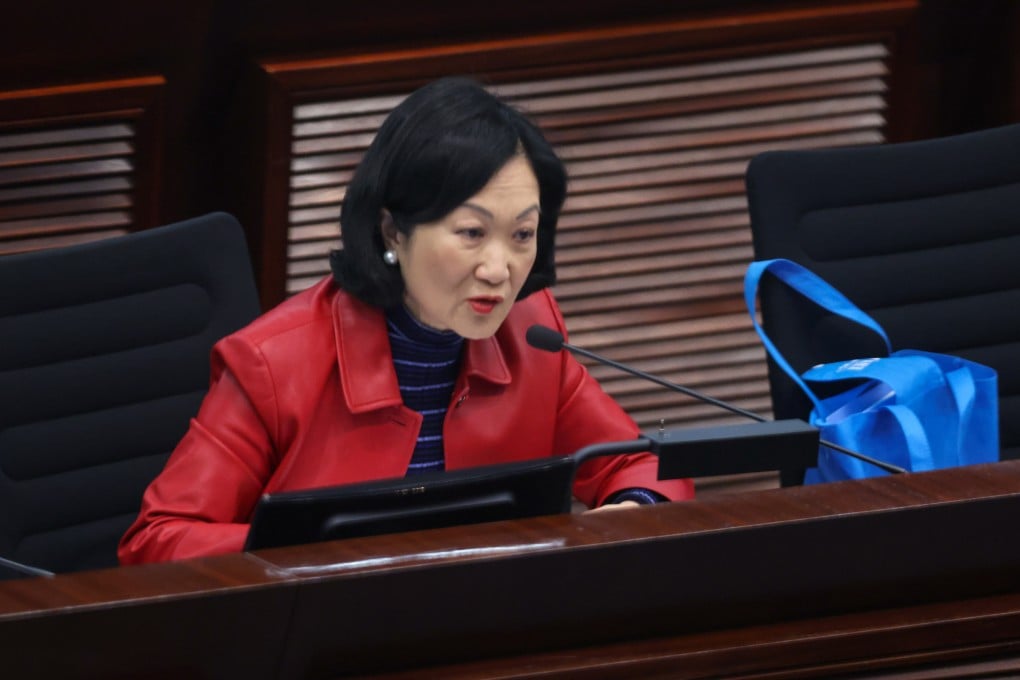Hong Kong government adviser Regina Ip hits out at Article 23 bill’s definitions of ‘external forces’, saying they’re ‘very broad’ and ‘very problematic’
- Lawmakers echo concerns of business chambers and professional bodies that criteria for external forces are ‘broad’ and ‘vague’
- Regina Ip questions how a body with members from just one ‘place’ can be considered an ‘international organisation’

The discussion came as the full bill adopted largely the same definitions of “external forces” outlined in a prior consultation paper, which had been a focus of concerns raised by business chambers and foreign governments during last month’s public feedback exercise.
References to “external forces” were made throughout the legislation as the maximum penalties for some offences would be higher when collusion with an external force is involved. In acts of seditious intention, for example, the penalty can go up from seven to 10 years’ imprisonment.
Lawmakers who began scrutinising the bill clause by clause on Friday echoed concerns of business chambers and professional bodies about the criteria of external forces that have been said to be “broad” and “vague”.
Regina Ip, who was security chief in charge of a previous aborted attempt at the legislation in 2003, questioned how an organisation with members from just one “place” could be considered an “international organisation”, thus be deemed an “external force” under the new law.
“I understand the government’s policy intention, but I think the drafting is very problematic,” said Ip, who is also convenor of the government’s key decision-making Executive Council.
“Do you just want to cover Taiwan? Why not spell out ‘Taiwan’ in a clause like the Societies Ordinance, which would be more clear?”
